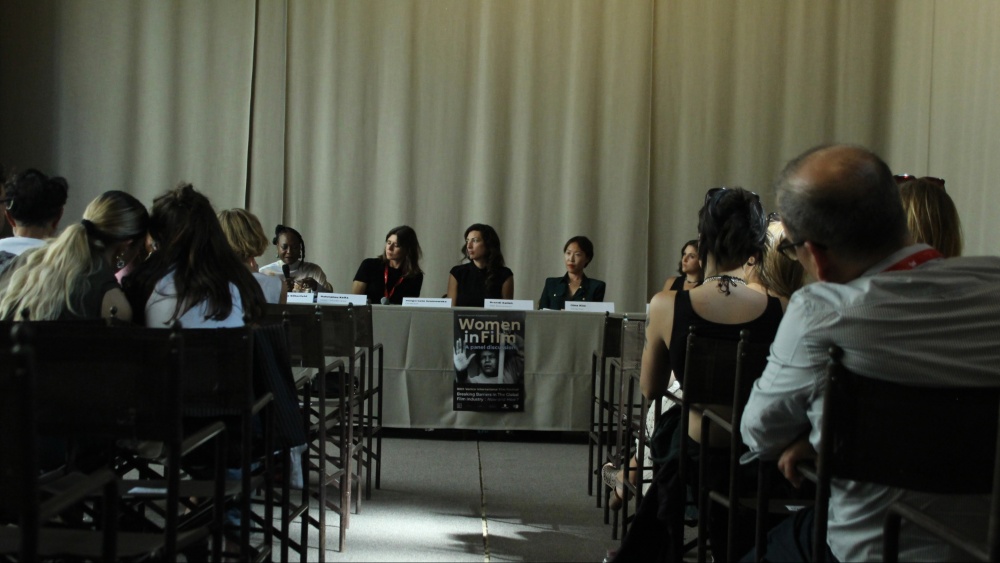
Seated before a photo of filmmaker Sarah Moldoror, panelists at this year’s Women in Film roundtable shared strategies for greater industry parity, while reflecting on recent successes and standstills in that ongoing pursuit. Variety has been give access to the video of the panel discussion.
Organized by Magaajyia Silberfeld and Winta Ghebre, and moderated by journalist and filmmaker Rahmatou Keïta, the Venice Film Festival roundtable brought together filmmakers Malgorzata Szumowska (“Woman Of”), Gina Kim (whose 3D-360 doc “Comfortless” screens in Venice Immersive), and Leila Basma (director of the Horizons-selected short “Sea Salt”), alongside set decorator Brandi Kalish (“The Killer”).
Moderator Rahmatou Keïta stressed the need for historical memory and for a greater degree of focus in order to prevent real gains from slipping into PR lip service. Keïta made mention of the equality charter signed at the 2018 Cannes Film Festival before caustically pointing out that five years prior, back in 2013, France’s political and cultural leaders had already signed a nearly-identical parity in cinema charter.
“A signature isn’t enough,” said Keïta. “As with anti-racist policies, there’s a lot of things we sign and that [lead to nothing more.] So we have to keep the flame lit at all times. We have to come back, we have to fight, we have to say, hey wait a second, we’ve signed something, so what’s going on?”
Keïta also wanted to keep the flame burning for Sarah Maldoror, the French-born director of West Indian descent, who made history as the first woman to direct a film in Africa with 1972’s “Sambizanga.” Maldoror would go on to direct many more over the course of her career. Celebrating Maldoror – who passed away at age 90 in 2020 – offered this year’s Women in Film panel to take inspiration for yesterday’s pioneers while looking toward tomorrow.
Speaking of the backslide towards more misogynistic content in contemporary Korean cinema, director Gina Kim cautioned that the Korean Film Council’s points-based subsidy system – which offers greater points to female-led projects – only fueled further ire on social media and within the industry. While urging continued government support in the light of such reactionary currents, Kim also stressed the overwhelming importance of the Seoul International Women’s Film Festival in nourishing creative talents and connecting them with the critics, audiences and distributors.
Furthering Kim’s warning that the category of ‘female director’ could be a label used for discrimination all on its own, set decorator Brandi Kalish explained that same lack of imagination affected her milieu as well, especially when female colleagues are not considered for macho, military-based projects or grittier fare. She pointed to her work on “American Horror Story,” and on “The Killer” as helpfully disproving such lines of thinking, and looked forward to a time when wider parity renders gendered distinction a moot point.
“Instead of saying that’s a female director, it would be nice just to say: That’s a badass,” Kalish added.
Women in Film














